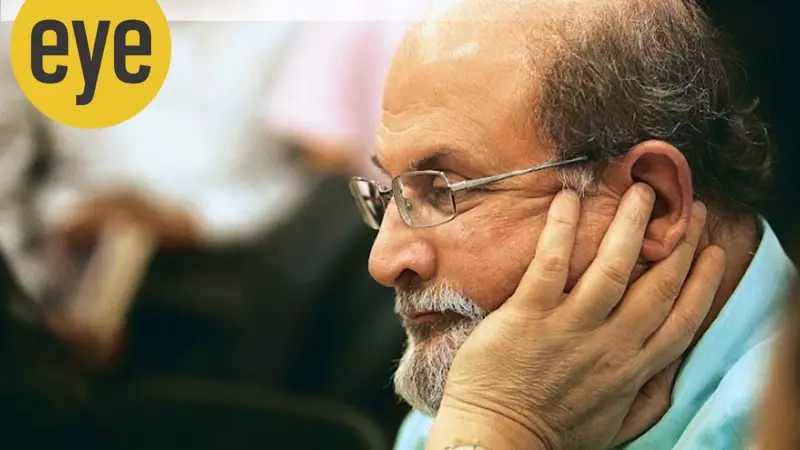
Celebrated author Salman Rushdie, in his newest collection of short stories titled The Eleventh Hour, turns toward the boundaries of language to investigate what endures when even words begin to falter. This significant work, published on November 22, 2025, marks a profound shift in the literary giant's approach to storytelling.
Confronting Mortality Through Stories
The collection finds its animation in death—through ghostly apparitions, dialogues with deceased authors, and thoughtful meditations on human mortality. The book's concluding sentence, "Our Words Fail Us," presents a striking contrast to Rushdie's established literary reputation. Throughout his career, he has demonstrated remarkable ability to construct entire universes through language, making words perform extraordinary feats and even challenging death itself.
Rushdie's relationship with language has been both protective and perilous. Words served as his indomitable armor against the fatwa issued by Ayatollahs and the violent stabbing attempt by Hadi Matar. Yet these same words also created his greatest vulnerabilities, making him susceptible to attacks from those who opposed his literary expressions.
The Many Dimensions of Linguistic Failure
The concept of words failing us takes on multiple dimensions in Rushdie's latest work. Some interpretations suggest this failure might reflect the natural effects of aging, where imagination and memory—two of Rushdie's most powerful faculties—begin to diminish. Alternatively, it might represent the moment when even a writer who survived death sentences finds himself speechless before the undeniable reality of death.
The failure of language also serves as commentary on our contemporary era, where insincerity, propaganda, and the easy instrumentalization of language have eroded the very medium in which Rushdie has always operated. We live in a time of linguistic excess, yet most language feels both exhausted and exhausting.
Five Stories Exploring Different Facets of Existence
The collection comprises five distinct stories, each approaching its themes with a more leisurely and contemplative pace than typical Rushdie works. 'In the South' portrays two elderly men engaged in constant bickering, for whom "death and life are adjacent verandas." The story features Rushdie's characteristic sharp wit, where profound truths emerge through seemingly casual exchanges.
'Late' follows the ghost of a Cambridge don who enlists a lonely student named Rosa in a plot involving intriguing shadows from the past. This story ventures into philosophical territory uncommon for Rushdie, exploring ideas like "To be free is to abandon the idea of being good."
'Oklahoma' presents a layered narrative within a narrative, where a young writer attempts to understand how his literary hero ended his life, ultimately writing his own story in the process. 'The Old Man in the Piazza' evokes a disappearing world of public squares where people gathered to dispute, but increasingly require arbitration as the fundamental rules of argument fade away.
The Return of Classic Rushdie in 'Kahani'
The second story in the collection, 'Kahani,' showcases the Rushdie that readers have come to recognize and admire. It bursts with stylistic excess, clever wordplay, and admittedly terrible puns—including one connecting software's beta version with the Hindi word 'beta.'
Superficially, the story centers on Chandini, a musical prodigy equally comfortable in Indian and Western traditions, whose artistic gift serves as both blessing and curse. The narrative also involves her ghostly mathematician father and her mother. The deeper theme explores how we create through belief—how concepts like God, Nation, and Money cease to exist if we stop believing in them.
In a brilliant narrative device, Rushdie reimagines Bombay not just as a story but as story itself. He proposes that instead of renaming colonial-era streets after third-rate politicians, the city had renamed them after stories and storytellers. The resulting list represents a classic Rushdie mixture, placing gods, heroes, fictional characters, and writers on equal footing: "Nissim Ezekiel Marg, Sholay Chowk, Valmiki Drive, Amar Akbar Anthony Road, Vyasa Vellard, Tendulkar (Vijay, we suppose, not Sachin) Terrace, Malgudi Circle, sprang into my head."
Despite exploring how words might fail us, how our experiences and even our democracy might falter, Rushdie's collection ultimately suggests that we remain the best stories we tell ourselves. The collection serves as both meditation and celebration of storytelling's enduring power, even as it questions language's ultimate capabilities.





